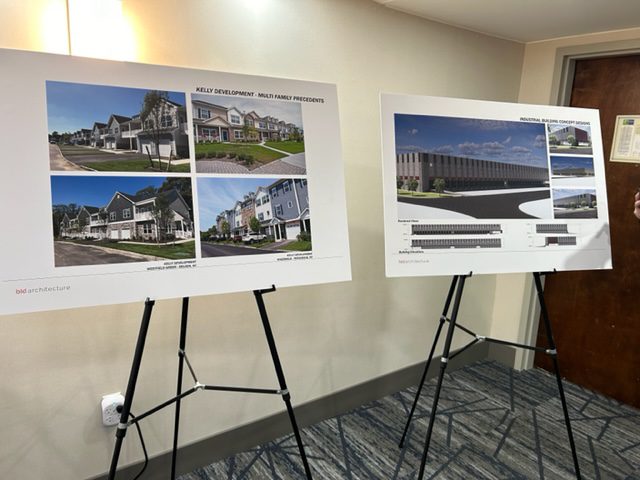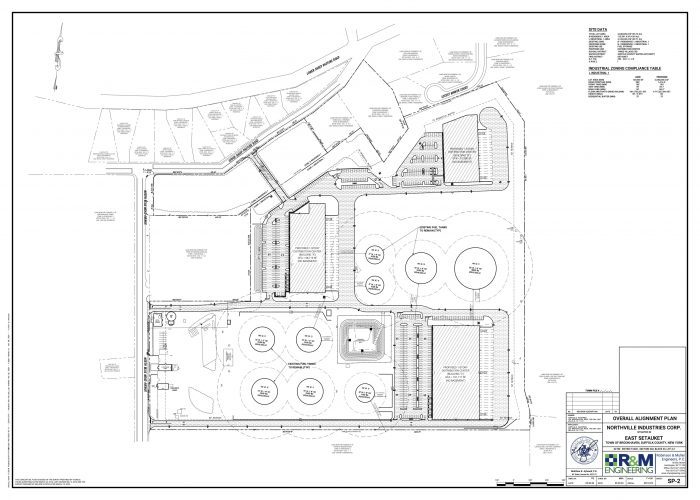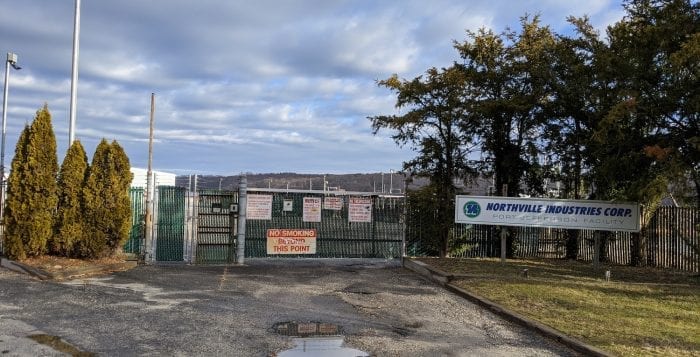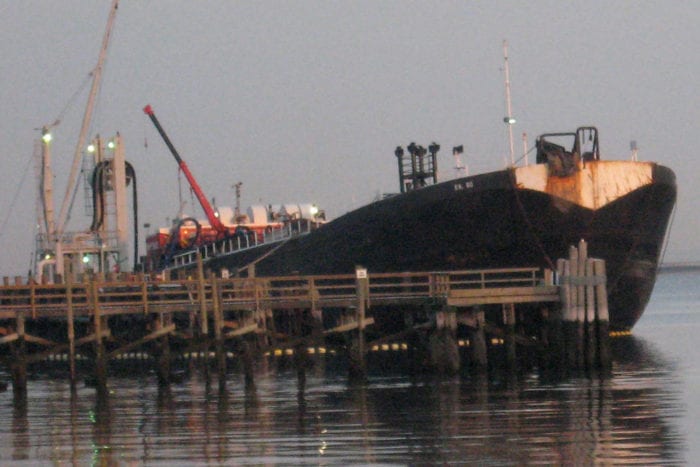Group also hears pros and cons of village incorporation, LIPA advocacy
By Mallie Jane Kim
Three Village Civic Association leaders have “serious concerns” about the proposed development of the Northville property in East Setauket, according to the association’s land use chair Herb Mones.
At the April 1 meeting, Mones said he and other civic association leaders had expressed their reservations to Northville in a few conversations at Brookhaven Town Hall — but that the community’s impact was key.
“I want to congratulate everybody,” Mones said of those who showed up to a March 25 meeting Northville hosted to share their dual proposals of building warehouses or multifamily rental units alongside their petroleum storage tanks. That meeting had to be canceled because an overabundance of attendees created a fire hazard in the rented hotel meeting room.
“I think that was pivotal in any further discussions in regards to the development at Northville,” he said.
Mones added that in his 30-plus years on the civic board, he has never seen a developer go directly to the community to air such ideas. Rather, he said, they usually go through the local civic association to invite input from local residents.
He also expressed confidence in the area’s elected officials for their representation of community concerns over the development. But he believes the overcapacity meeting sent a strong message.
“Without that participation, I think we would start to see different outcomes,” Mones said. “I think it made it very clear that this community is very involved in any development.”
When canceling the March meeting, a lawyer for Northville said the company would find a larger venue to accommodate citizens for the rescheduled meeting and expressed a strong desire to hear any community concerns about the proposals.
Village incorporation explained
The civic association also heard about the benefits of village incorporation, which include local control over zoning, site plan approvals and traffic safety.
“Every day, decisions are being made that have a direct impact on us and our families,” explained municipal lawyer and longtime Three Village resident Joseph Prokop in his presentation. “When you have a village, the people making those decisions are people that live in your community and are being affected the same way that you are.”
Prokop explained there are ways to predict whether and how taxes would change under incorporation, but that varies from village to village, depending on what services the village opts to provide.
He mentioned nearby incorporated villages included Port Jefferson, Belle Terre, Poquott, Old Field, Lake Grove and Head of the Harbor.
Civic association board member George Hoffman said after the meeting that Three Village currently has a good relationship with the Town of Brookhaven, but there’s something appealing about incorporating. “I like the idea that it’s your own neighbors you go to in making the decisions,” he said.
Hoffman and other board members stressed that incorporation is just a hypothetical at this point. If there was a significant push or reason to explore it seriously, the next step would be to form an exploratory committee.
A big question in incorporating the Three Village area, according to Prokop, might be what exactly to name it.
Ronald McDonald House update
In another presentation of community interest, Sam Ostler, capital campaign manager of Ronald McDonald House Charities, announced the group is planning to break ground on its facility near Stony Brook University Children’s Hospital on April 30. He said it will be a 30-room Ronald McDonald House and will serve about 300,000 people over the next 10 years.
“Not one person has ever regretted staying at a Ronald McDonald House,” Ostler said. “They may look back on it as a very traumatic time — we have many heartbreaking stories — but they always look back on a place that was a home for them.”
Ostler said the charity had already raised 80% of the $30 million necessary to build the facility, and it will be working to complete the fundraising in coming months.
LIPA advocates speak
Area residents JoAnne Doesschate and Jane Fasullo asked citizens to consider making Long Island Power Authority its own public utility, rather than continuing to contract out to PSEG Long Island, a change proponents estimate would save $80 million per year.
Lawmakers in Albany are currently examining an option to end its relationship with the for-profit power provider when its contract expires in 2025, allowing LIPA to run the grid itself — essentially changing leadership, as the contracted union workers would remain on the job.
“PSEG lobbyists are pushing to make sure that doesn’t happen,” Doesschate said. “And so we need all of you to make sure it does happen.”
Doesschate and Fasullo, who said they have been involved in advocacy organization Reimagine LIPA for several years, pointed to the fact that Long Island electricity rates are among the highest in the nation. In addition to saving money, they said, it would be better to keep money spent on power local.
“You’re giving all this money to a for-profit company in New Jersey, and we could keep it here,” Doesschate said.
Not everyone at the meeting agreed. One attendee said he had experience as an electrician interacting with the power company and questioned whether a public agency would do a better job at setting the standards for responsiveness to citizens.
“They’ve been doing a really good job the past years,” he said of PSEGLI. “Some people may not agree with me, but I can tell you from experience, they’ve been working really hard.”
Civic association president Charles Tramontana welcomed the lively discussion and said community-interest presentations are what the association is all about.
“Whether you agree or disagree, at least you get information here and you can decide for yourself,” he said. “That’s one of the reasons we like to facilitate different speakers coming in.”









